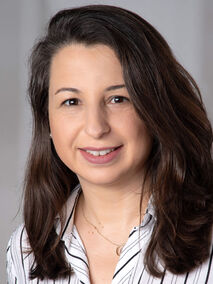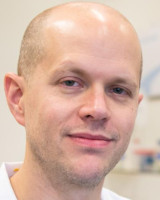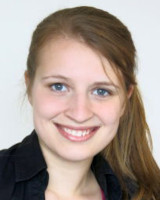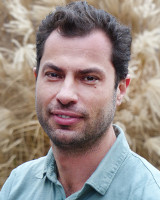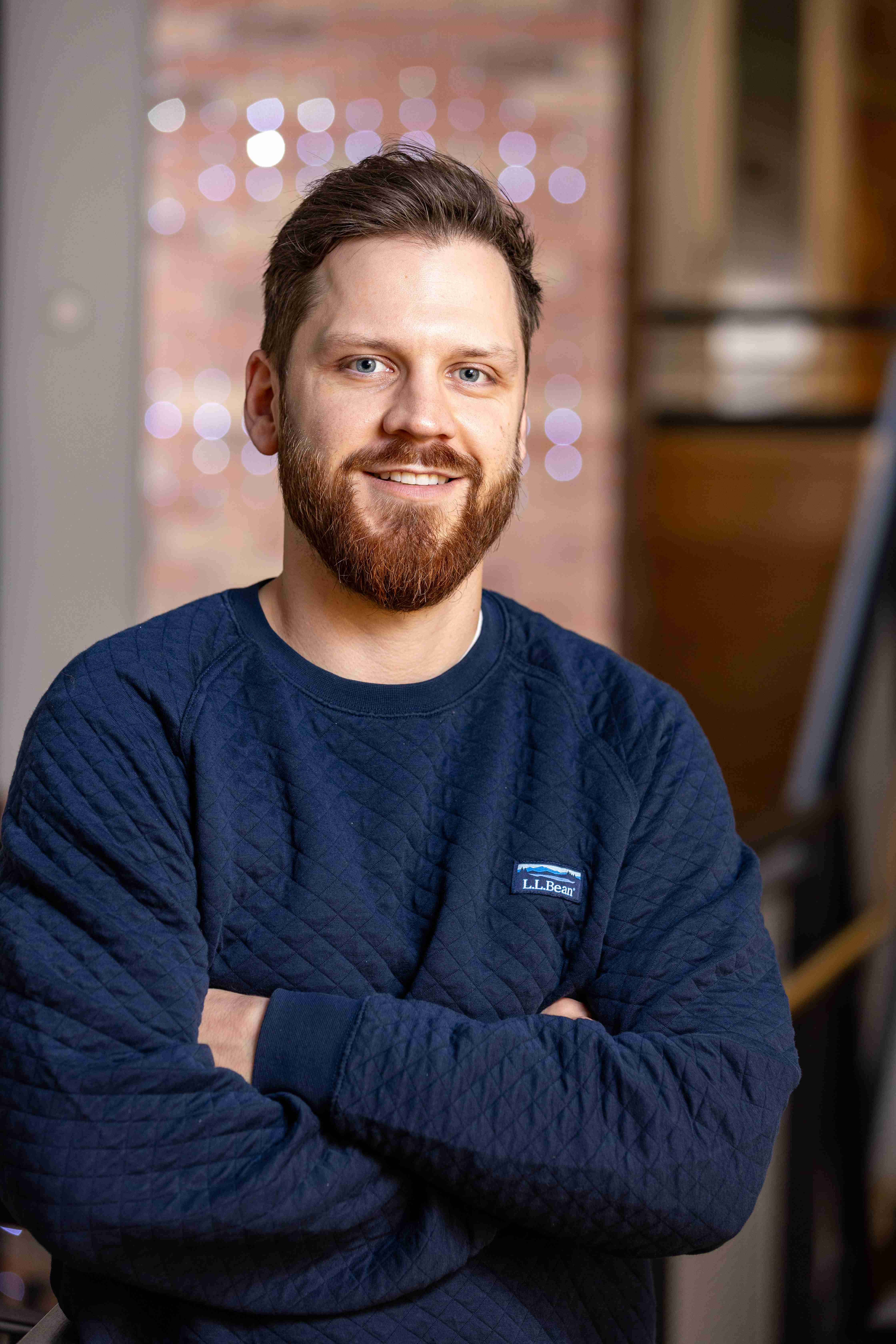
MCB Lecturers
This is a list with almost everyone who in some way or another is involved in the MCB program.
Amir Abdollahi
Sergio Acebron
 |
Affiliation: COS
Field of research: Our lab studies how cells integrate
extracellular signals to build and maintain different tissues. We pursue
interdisciplinary projects to unravel how microenvironmental signals
monitor genome and chromosomal stability from development to ageing and
disease. To that end, we employ 2D/3D stem cell models of mouse and
human development including gastruloids, and tissue homeostasis
(Organoids), as well as mouse models and human primary or immortalised
cancer cells. In these models, we perform detailed molecular analyses,
genome-editing, 2D/3D live imaging, as well as different single cell and
population OMICs techniques such as single cell genome and
transcriptome sequencing (scG&T- seq).
e-mail: sergio.acebron@cos.uni-heidelberg.de
website
|
Simon Anders
Thomas Barends
 |
Affiliation: MPI for Medical Research
Field of research: Our group studies anaerobic ammonium
oxidation, a bacterial process that is responsible for a large part of
the world s nitrogen turnover. This process is not only very interesting
because of its global importance, but also because it involves the
extremely reactive intermediate hydrazine, which we humans use as a
rocket fuel. Using protein crystallography and other biophysical
techniques, we try to find out how bacteria produce such unusual and
toxic chemicals and how they keep them under control.
e-mail: thomas.barends@mpimf-heidelberg.mpg.de
website
|
Jochen Baßler
 |
Affiliation: BZH
Field of research: Our lab is interested in the molecular
mechanism of membran transporters.
We are applying biochemical and biophysical methods as well as CryoEM to
study the transportmechanism of these transporters on a molecular
level.
e-mail: jochen.bassler@bzh.uni-heidelberg.de
website
|
Cristina Batista Paulino
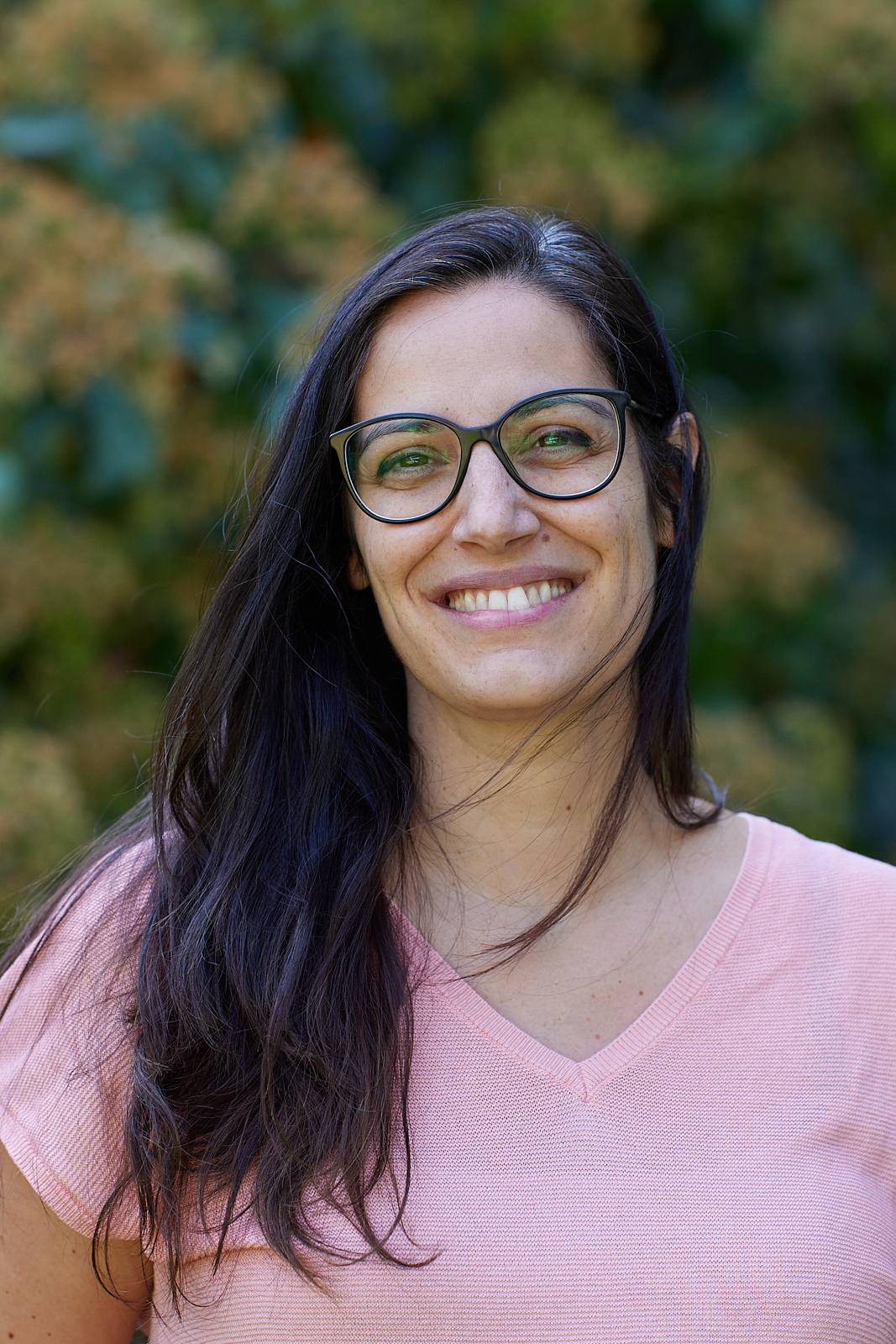
| Affiliation: BZH
Field of research: Molecular Membrane Biochemistry, Structural Biology, cryo-electron Microscopy (cryo-EM)
Main focus: deciphering the mechanism of action and regulation of membrane transporters and channels on a molecular level.
e-mail: cristina.paulino@bzh.uni-heidelberg.de
website |
Ilka Bischofs
 |
Affiliation: BioQuant
Field of research: Our lab studies bacterial signaling networks and bacterial
stress responses. We work with Bacillus subtilis and use and
interdisciplinary approach that combines quantitative imaging, genetic
and molecular methods with biophysical and computational approaches.
e-mail: ilka.bischofs@bioquant.uni-heidelberg.de
website |
Michael Boutros
 |
Affiliation: DKFZ
Field of research: Our lab is interested in the systematic
analysis of signalling pathways during development and disease. We use
genomic technologies as well as cell biology and genetics in model
systems and human cells in order to dissect how signals are secreted,
how they are received and transmitted.
e-mail: m.boutros@dkfz.de
website |
Britta Brügger
Michael Brunner
Bernd Bukau
 |
Affiliation: ZMBH
Field of research: The goal of our research is to understand the molecular mechanisms and
functional networking of chaperones in protein biogenesis and
quality control. We furthermore aim to elucidate causes and consequences
of protein aggregation related to disease, including cancer and
neurodegeneration. Within the past years we extended our models from E.
coli to S. cerevisiae, C. elegans and human cells, and are employing
multi-disciplinary approaches ranging from genetics and molecular
biology to biochemistry and biophysics.
e-mail: b.bukau@zmbh.uni-heidelberg.de
website
|
Tobias Dick
 |
Affiliation: DKFZ
Field of research: We are investigating signaling pathways by
which endogenous hydrogen peroxide contributes to the regulation and
deregulation of cellular physiology. We are interested in the nature of
redox alterations that accompany inflammation and malignant growth.
Special attention is devoted to the molecular mechanisms by which H2O2
achieves specificity as a signaling molecule. Another focus is the
effort to uncover and understand the spatio-temporal dynamics of redox
processes in vivo.
e-mail: T.Dick@dkfz.de
website
|
Daniela Duarte Campos
Bilgen Ekim
Freddy Frischknecht
 |
Affiliation: Uni Klinikum
Field of research: We study the motile forms of the malaria
parasites that are transmitted by mosquitoes. To this end we use reverse
genetics to delete genes that are important for parasite formation and
migration and study the effects of these deletions by different
microscopy techniques. We also collaborate closely with colleagues in
physics and are interested in experimental vaccines.
e-mail: freddy.frischknecht@med.uni-heidelberg.de
website
|
Kasper van Gelderen
Kerstin Goepfrich
Ralph Grand
Jan Haas
Konrad Herbst
Ingrid Hoffmann
 |
Affiliation: DKFZ
Field of research: The Hoffmann lab is studying the mechanisms
that control duplication of the centrosome in normal and in cancer
cells. The central question behind our work is how the centrosome
controls cell function and how defects in these structure cause a
remarkable range of human diseases including cancer.
e-mail: ingrid.hoffmann@dkfz.de
website
|
Mandy Jeske
Claudio Joazeiro
Henrik Kaessmann
 |
Affiliation: ZMBH
Field of research: A primary goal in biology is to understand the
molecu lar basis of phenotypic evolution, most notably that of humans
and other mammals. Most phenotypic differences between species are
likely due to regulatory mutations that affect gene expression. Our lab
is therefore generating comprehensive sets of RNA-seq data and various
other high-throughput omics (e.g., epigenomic, metabolomic, proteomic)
datasets for a large collection of tissues from representative mammals
and performs integrated analyses of these data to study the expression
(regulatory) evolution of mammalian genomes across gene types, lineages,
organs, developmental stages, cell types, chromosomes and sexes.
e-mail: h.kaessmann@zmbh.uni-heidelberg.de
website
|
Ursula Klingmüller
 |
Affiliation: DKFZ
Field of research: The focus of our division is aimed at the
quantitative analysis of signaling in mammalian cells. We have pioneered
dynamic pathway modeling and advanced standardized data generation for
mathematical modeling purposes. The main projects of the division
address (i) unraveling principal mechanisms of erythropoietin
(Epo)-mediated cellular decisions in the hematopoietic system, (ii)
bridging from the cellular to the whole organ level during liver
regeneration and in liver diseases and (iii) insights into altered
regulation in cancer and prediction of strategies for efficient
intervention in diseases (lung cancer, drug-induced liver injury, viral
infection).
e-mail: U.Klingmueller@dkfz.de
website
|
Michael Knop
 |
Affiliation: ZMBH
Field of research: The Knop lab is focussed on the understanding
of cellular processes related to cell morphogenesis and cell
signaling. We apply systemic approaches to understand the
collective behavior of molecules and how they provide functionality to
cells. Our goal is to gain a quantitative understanding by using
state-of-the art methods, in particular advanced microscopic techniques
or instrumentation in order to visualize the spatial and temporal
behavior of molecules inside living cells.
e-mail: m.knop@zmbh.uni-heidelberg.de
website
|
Michael Lanzer
 |
Affiliation: Centre for Infectious Diseases
Field of research: Molecular Parasitology, mechanisms of drug
resistance in P. falciparum; antigenic variation, cytoadherence, protein
trafficking in P. falciparum, membrane transport processes, natural
protection from malaria by haemoglobinopathies.
e-mail: michael.lanzer@med.uni-heidelberg.de
website
|
Frank Lyko
 |
Affiliation: DKFZ
Field of research: Epigenetic mechanisms regulate the
interpretation of genetic information and adapt gene expression patterns
to changing developmental or environmental contexts. Our research
focuses on understanding the biological function of DNA methylation,
which represents the best-studied and arguably most relevant epigenetic
mark.
e-mail: f.lyko@dkfz.de
website
|
Alexis Maizel
 |
Affiliation: COS
Field of research: Our lab is interested in the molecular and
cellular basis of developmental plasticity in plants. We focus in
particular on the role of small regulatory RNAs (micro-RNAs) and their
role in controlling root growth.
e-mail: alexis.maizel@cos.uni-heidelberg.de
website
|
Matthias Mayer
 |
Affiliation: ZMBH
Field of research:
Our research focus is the molecular mechanism of Hsp70 and
Hsp90 chaperones. We analyze their conformational dynamics, how they are
controlled by cochaperones and how they influence the conformation of
client proteins, among which are many key regulatory proteins such as
transcription factors and kinases. To characterize these
proteins and protein-protein-interactions we mainly use biochemical and
biophysical techniques including hydrogen exchange mass spectrometry and
fluorescence spectroscopy.
e-mail: m.mayer@zmbh.uni-heidelberg.de
website
|
Benjamin Meder
Aubry Miller
 |
Affiliation: DKFZ
Field of research: The Cancer Drug Development group discovers
and develops small molecule inhibitors, as the first step in creating
novel cancer therapeutics. These small molecule inhibitors can be used
as research tools to help elucidate the role(s) that target proteins
play in cancer, and can be starting points for more advanced drug
development projects. Research projects in the group tackle topics such
as target identification and validation, assay development for high
throughput screening, medicinal chemistry optimization and the synthesis
of chemical biology probes, and the establishment of phenotypic
cellular assays to profile small molecule inhibitors. The group consists
of an interdisciplinary team of chemists and biologists with expertise
in drug discovery.
e-mail: see website
website
|
Axel Mogk
 |
Affiliation: ZMBH
Field of research: Bacterial secretion and virulence; Protein
folding and quality control; Molecular chaperones and proteases
e-mail: a.mogk@zmbh.uni-heidelberg.de
website
|
Gislene Pereira
 |
Affiliation: COS
Field of research: Our group is interested in understanding the
role of centrosomes in cell cycle progression and ciliogenesis. For
this, we use a broad range of cell biology, biochemical and genetic
techniques to investigate centrosomal-associated signalling cascades in
budding yeast and cilia formation in mammalian cells.
e-mail: gislene.pereira@cos.uni-heidelberg.de
website
|
Jirka Peschek
Stefan Pfeffer
Ashraf Yusuf Rangrez
Alessia Ruggieri
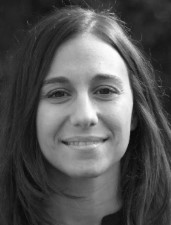 |
Affiliation: CIID at the University Hospital
Field of research: Throughout the infection, viruses elicit
multiple host cell responses including innate immune and stress
responses. We investigate how RNA viruses, such as hepatitis C virus,
dengue virus and Zika virus, utilize or antagonize the host translation
machinery as well as stress response pathways to escape antiviral
activation and ensure their progeny production.
e-mail: Alessia.Ruggieri@med.uni-heidelberg.de
website
|
Alexander Sasse
Elmar Schiebel
Anne Schlaitz
 |
Affiliation: BZH
Field of research: The Schlaitz lab investigates the structure
and dynamics of membrane-bound organelles during mitosis. We would like
to understand how the shape and position of organelles are controlled
during cell division and how organelles and microtubules cooperate to
ensure successful mitotic progression. We currently use tissue culture
cells as models and apply a range of advanced imaging methods as well as
biochemical assays.
e-mail: anne.schlaitz@bzh.uni-heidelberg.de
website
|
Sebastian Schuck
Denis Schapiro
Irmi Sinning
Thomas Söllner
 |
Affiliation: BZH
Field of research: Our goal is to reveal how the molecular fusion
machinery assembles and controls calcium-triggered exocytosis and
fusion pore dynamics. We study the role of defined regulators at
distinct steps of the assembly pathway using reconstituted fusion and
cellular exocytosis assays. To obtain structural information, we are
collaborating with other laboratories in Heidelberg.
e-mail: thomas.soellner@bzh.uni-heidelberg.de
website
|
Anna Steyer
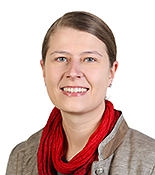 |
Affiliation: EMBL
Field of research: Cryo electron microscopy in molecular and cell biology.
e-mail: steyer@embl.de
website
|
Georg Stoecklin
 |
Affiliation: Medical Faculty Mannheim
Field of research: By regulating the stability and translation
rate of mRNAs, cells can rapidly turn on and off the expression of
critical proteins. We examine molecular mechanisms that determine the
translation and turnover of mRNAs in cells of the mammalian immune
system, in cancer cells and in the context of stress responses.
e-mail: g.stoecklin@zmbh.uni-heidelberg.de
website
|
Aurelio Teleman
 |
Affiliation: DKFZ
Field of research: The lab studies how cells regulate their
growth, using both Drosophila and mammalian tissue culture. This has
implications for both normal animal development and cancer development
e-mail: a.teleman@dkfz.de
website
|
Andreas Untergasser
 |
Affiliation: ZMBH
Field of research: Our research focuses at the border between
bioinformatics and molecular biology. We cover primer design with
contributions to the tool Primer3 and the development of Primer3Plus and
quantitative PCR with contributions to the machine intependent data
format RDML and the development of the editor RDML-Ninja. In the last
years we expanded our research into the field of next generation
sequencing in collaboration with the EMBL.
e-mail: a.untergasser@zmbh.uni-heidelberg.de
website
|
Mirko Völkers
 |
Affiliation: Uni Klinikum
Field of research: Our lab studies growth and survival of
cardiac myocytes under physiological and pathological conditions.
Specifically, we are interested how translational regulated networks of
mRNAs contribute to gene expression control during cardiac stress. We
use high-throughput technologies as well as molecular biology and
genetics in in vivo disease model systems to study post-transcriptional
gene expression control with the overall goal to to maintain cardiac
structure and function after myocardial infarction or pressure overload.
e-mail: mirko.voelkers@med.uni-heidelberg.de
website
|
Nora Voegtle
Rebecca Wade
 |
Affiliation: HITS/ZMBH
Field of research: Molecular and Cellular Modeling. The group
works on the development and application of computer-aided methods to
predict and simulate biomolecular interactions. The focus is on proteins
and our computational approaches are mostly based on the
three-dimensional structures of macromolecules. We take an
interdisciplinary approach, entailing collaboration with
experimentalists and concerted use of computational approaches based on
physics and bio-/chemo-informatics. The broad spectrum of techniques
employed ranges from interactive, web-based visualization tools to
atomic-detail molecular simulations.
e-mail: r.wade@zmbh.uni-heidelberg.de
website
|
Klemens Wild
 |
Affiliation: BZH
Field of research: mechanisms of key cellular processes at the
atomic level. We focus on molecular machines involved in protein
targeting, insertion and membrane translocation. The combination of
structural biology to elucidate the three-dimensional architecture of
macromolecular complexes with functional analyses provides the
mechanistic principles
e-mail: klemens.wild@bzh.uni-heidelberg.de
website
|














